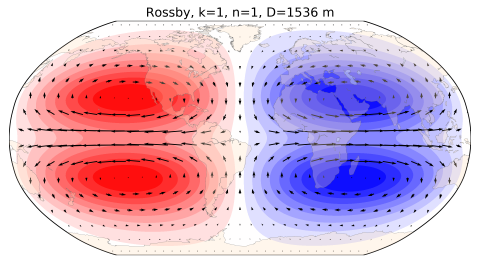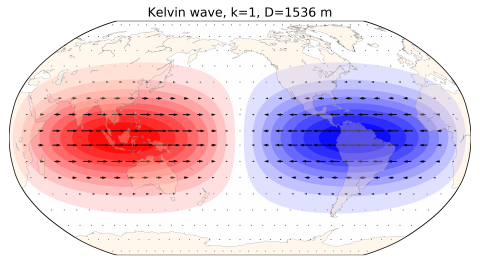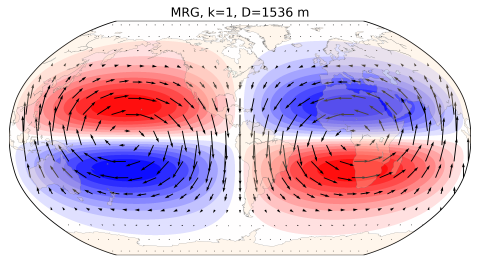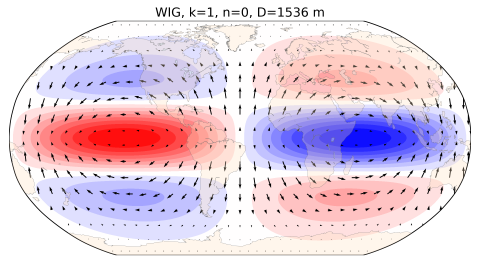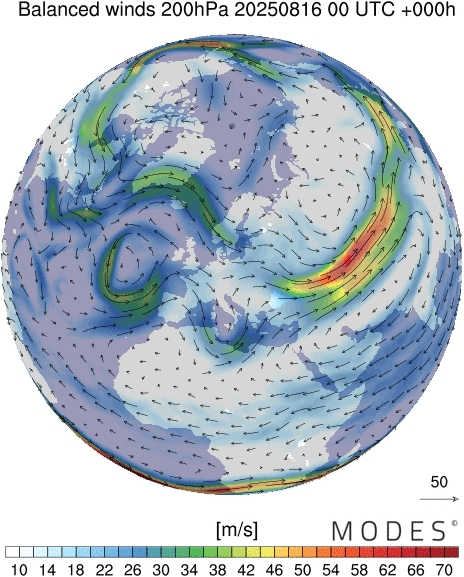Modal decomposition of ECMWF deterministic forecasts
Energy spectra
Distribution of atmospheric balanced and inertia-gravity energy as a function of the zonal wavenumberCirculation maps
Regional circulation maps at 850 hPa and 200 hPaTropical winds
Tropical zonal winds associated with balanced and unbalanced circulationKelvin waves
Kelvin waves in the ECMWF modelMixed Rossby-gravity waves
Mixed Rossby-gravity waves in the ECMWF modelPolar maps
Polar view of midlatitude circulation in the stratospheren=1 Rossby waves
Hovmoeller diagrams
Ten-day evolution of the tropical winds on selected levelsInertia-gravity waves
Horizontal winds and geopotential height perturbations associated with eastward and westward inertia-gravity waves (40°S-40°N)Modal view of atmospheric circulation
MODES applies three-dimensional linear wave theory for the decomposition of global circulation in terms of normal-mode functions (NMFs). For details, see https://gmd.copernicus.org/articles/8/1169/2015/. MODES outputs quantify spatial and temporal variability associated with the two main circulation regimes, the Rossby wave (or balanced) regime and the inertia-gravity wave (or unbalanced) regime. The approach is most useful in the tropics where the two special NMF solutions, the Kelvin wave and the mixed Rossby-gravity wave, account for a significant part of tropical variability. Recently published book describes theory and applications of normal-mode functions in weather and climate dynamics and numerical weather prediction research: https://www.springer.com/gp/book/9783030609627. MODES pages provide real-time and archive results of modal decomposition of the operational deterministic ECMWF 10-day forecasts. Selected outputs of modal analysis of reanalysis and interesting datasets are also here.
Note, this new site is still under construction and graphics may change at any time without notice. If you miss the old MODES page in the Sigma system, you can still find it under https://modes-old.cen.uni-hamburg.de
MODES is maintained and further developed by the Atmospheric Dynamics and Predictability group of Prof. Nedjeljka Žagar at the University of Hamburg.
